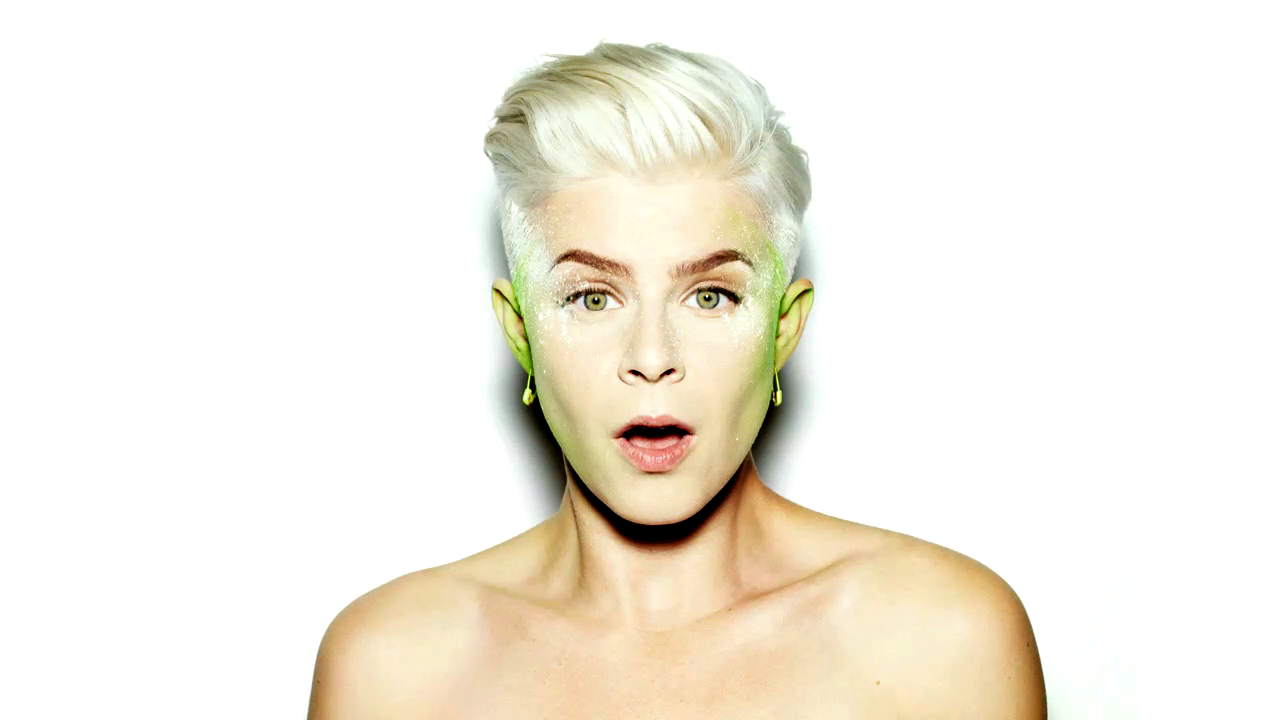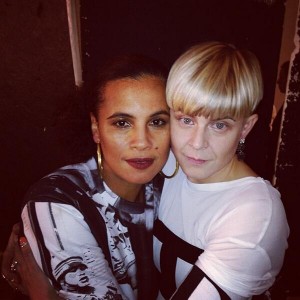Why we need a new Robyn album in 2014
By Nick Levine

Huw Oliver tells us why the return of Robyn is A Very Good Thing Indeed…
Few pop stars consistently leave you wanting more, but disco queen and robo-icon Robyn is most certainly one of them. It’s been nigh on four years since the bold, bleached Scandinavian last released anything, and even though, yes, she put out a sort-of-trilogy of albums that year (2010’s Body Talk pt. 1, Body Talk pt. 2 and Body Talk), we still couldn’t get enough. These were profound, affecting pop records with a soul.
At long last, it appears she’s gearing up for a return in 2014. Way, way back in January 2012, she began work on new material with longtime collaborator Patrik Berger (also the producer behind I Love It by Icona Pop), but a drawn-out, yawn-worthy silence followed. Tweeting from the studio this July, she claimed she was “chillin… with Dave the dog”, who hopefully wasn’t in charge of twiddling the knobs. There was also an Instagram photo joking (I think) that “the new album is gonna be all keytar”. So far, so elusive… But Robyn has recently announced a European tour with prolific Norwegians Röyksopp, with whom she has recorded several times in the past, so it seems like new material might finally be on its way.
Of course, we have no clue what this prospective new material will sound like, because Robyn only ever does it for herself. A high-powered, independent diva, every move she makes is a statement of purpose, a change, a step forward. Though she emerged in the mid-90s as a Billie Piper-like teen-pop star making relatively straightforward bubblegum tracks (Show Me Love, such a tune! – Ed., on the Body Talk trilogy she tried her hand at everything from house music to hip-hop, disco to dancehall. It was obvious by this point that Robyn had resolved never to conform, follow the zeitgeist or jump on any bandwagon.
The remarkable change of tack came back in 2007 with the slow-burning international success of fourth album Robyn. While With Every Heartbeat became the million-selling global smash hit, it was Konichiwa Bitches which flaunted Robyn’s new, gutsy modus operandi with lines like “fight the power / put myself on the throne / (…) I’ll run you down like a marathon / Tape you up good”. Breaking free from the shackles of Jive Records, who wanted her to become the “the next Christina Aguilera” in the States and compromise when it came to songwriting (new song Who’s That Girl? was apparently deemed a little too “out there”), she founded her own label, Konichiwa Records. Therein, she created a whole new world of independence and creativity. No more trifling teen-pop; rap and R&B were Robyn’s real influences. Visually, she took on a whole new strong and vibrant aesthetic: full of colour, unafraid of being sexy.
Although she showed a highly personal emotional sensitivity on songs like With Every Heartbeat, Be Mine and Bum Like You, a brash sense of bravado and braggadocio filtered through on covers of Jack U Off (originally by Prince) and Cobrastyle (by the Teddybears). This is one of several dichotomies present in Robyn’s music, another being the juxtaposition of stony-faced seriousness with laugh-out-loud lyricism. “Comin’ in your mouth, make you say yum-yum,” she sings on Konichiwa Bitches.
Robyn‘s heady attitude continued on the Body Talk albums: Don’t Tell Me What To Fucking Do was a self-affirming two fingers to those who denied her creative freedom, while dreamy Snoop Dogg collab U Should Know Better was possibly even fiercer (key line: “You should know better than to fuck with me”). Visuals are important for Robyn, of course, and the amazing Decida-directed video for U Should Know Better was her best yet. Throughout the clip, in a surreal switch of gender roles, we follow her female friend Penilla as Snoop (an uncanny spitting image), while a little blond boy plays Robyn. Everything else is wonderful too: Robyn herself makes a cameo as the boy’s mum, Neneh Cherry posters adorn his walls and it’s all so knowing.
Throughout the Body Talk trilogy, Robyn was fascinated by youth culture and night-time disillusionment. Perhaps the best example is Top 10 hit (and Girls favourite) Dancing On My Own, a melodramatic description of dancefloor desolation on which Robyn sings about spotting her lover with another girl. Robyn’s essential humanity shouldn’t be forgotten – even when she’s playing a cyborg. “I’ve got some news for you / Fembots have feelings too” goes one of Body Talk‘s most indelible choruses.
 This humanistic interpretation of sci-fi is important for Robyn, from the earlier Robotboy through to the more recent Time Machine. In the video for Indestructible, meanwhile, an oddly erotic couple begin to make out while Robyn, clearly sentimental and tempestuous, is wrapped up in plastic tubes of running liquid, turning red, blue, green, then black. The 90s Ibiza backdrop throbs relentlessly, right up to the climactic, orgiastic conclusion. Thist symbolism is effective: the song is, on its simplest level, concerned with what real-life sex actually is and the relentless excitement at the start of a relationship. Here, the frantic physicality represents that falling in love. The tubes are the pulsating inner excitement, all endorphins, warmth and heart.
This humanistic interpretation of sci-fi is important for Robyn, from the earlier Robotboy through to the more recent Time Machine. In the video for Indestructible, meanwhile, an oddly erotic couple begin to make out while Robyn, clearly sentimental and tempestuous, is wrapped up in plastic tubes of running liquid, turning red, blue, green, then black. The 90s Ibiza backdrop throbs relentlessly, right up to the climactic, orgiastic conclusion. Thist symbolism is effective: the song is, on its simplest level, concerned with what real-life sex actually is and the relentless excitement at the start of a relationship. Here, the frantic physicality represents that falling in love. The tubes are the pulsating inner excitement, all endorphins, warmth and heart.
In other words, Robyn was winning points for cool, quirky Scandi-pop before anyone really knew it was a thing. In the four years since her last record, she’s hardly been inactive: collaborating with the Lonely Island, supporting Katy Perry and Coldplay on tour, winning a 1.2 million Kronor Prize from the Swedish Royal Institute of Technology, working as a UNICEF ambassador, creating a video game (Mixory), performing Hang With Me on Gossip Girl, guesting on Neneh Cherry’s forthcoming record… But enough of all that. Robyn is a brilliantly ridiculous person leading a brilliantly ridiculous life, and we so need a new album of her unconventional pop-isms.
